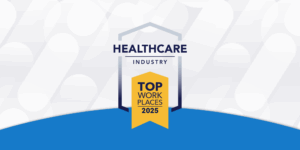Moorestown, NJ, April 6, 2021 – Tabula Rasa HealthCare, Inc (TRHC) today announced publication of a research article, “Longitudinal Association of a Medication Risk Score With Mortality Among Ambulatory Patients Acquired Through Electronic Health Record Data” in the Journal of Patient Safety (JPS).
The study, conducted by the DARTNet Institute and the Department of Clinical Pharmacy, Skaggs School of Pharmacy and Pharmaceutical Sciences, University of Colorado in collaboration with TRHC’s Precision Pharmacotherapy Research and Development Institute, found the risk of death increased with higher medication risk scores (MRS). These results suggest that pharmaceutical interventions for those with an elevated MRS could significantly improve medication safety.
The appropriate use of medications is critical to avoid harm. The study establishes TRHC’s MedWise Risk Score™ as the new, innovative standard for measuring risk that medication regimens pose.
“This study provides evidence that the medication risk score can be an effective predictor of mortality risk due to adverse drug events (ADEs),” said TRHC Chair and CEO Calvin H. Knowlton, Ph.D. “TRHC’s MedWise Risk Score gives clients, physicians and pharmacists a crucial clinical decision tool to identify and reduce medication risk, helping to save lives and keep patients healthier.”
The study used electronic health record (EHR) data from more than 427,000 patients from multiple U.S. healthcare organizations to calculate medication risk scores, using TRHC’s proprietary MedWise® technology. Higher MRS has been correlated to increased ADEs, emergency department visits, and hospitalizations in previous studies.
To better understand if the increase in the MedWise Risk Score extends to increased mortality risk, researchers compared them with incidents of electronic health record (EHR) recorded death. After adjusting for common multi-morbidities and other conditions, the study showed that patients with EHR-recorded deaths had significantly higher MRS than others.
In addition, it was found that the risk varies by age group and by MRS category where the highest risk was seen among patients in the 30-49 year-age group that had an MRS of ≥20.
“This is a unique risk stratification model using drugs, not disease, to identify patients at increased risk of adverse drug effects, including death,” said TRHC Precision Pharmacotherapy Research and Development Institute Chief Operating Officer Veronique Michaud. “The results suggest that clinical pharmacy interventions among those with elevated scores could improve medication safety for patients taking multiple medications.”
“The Tabula Rasa medication algorithms are highly correlated with death and offer a remarkable opportunity to advance mediation safety. This study showed that they can be effectively used with electronic health record data. As they spread in clinical care ongoing evaluation of the impact of these advanced algorithms on clinical outcomes will be exciting next steps,” said Wilson Pace, MD, FAAFP, Professor of Family Medicine at the University of Colorado, the Geen-Edelman Chair for Practiced-based Research, Director of the American Academy of Family Physicians National Research Network and a co-author of the Institute of Medicine Crossing the Quality Chasm monograph on Preventing Medication Errors.



